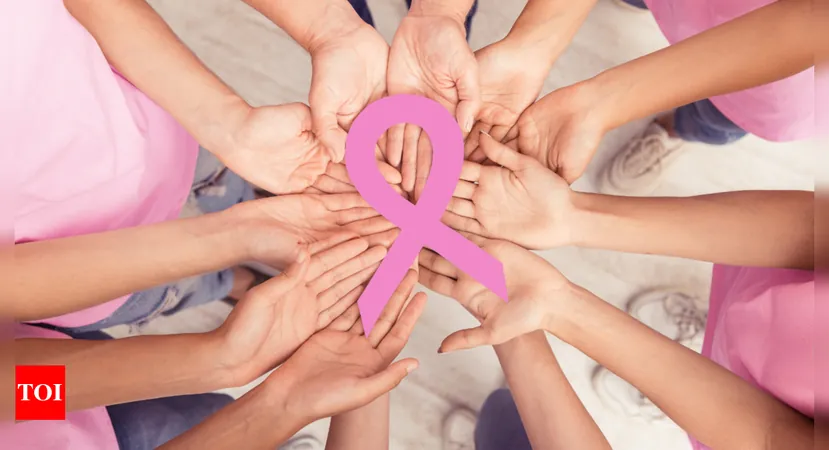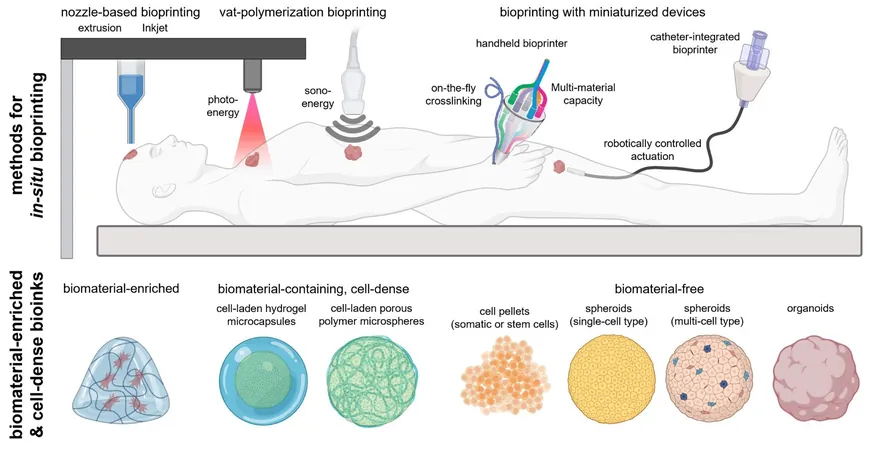
The Hidden Connection Between Breast Cancer and Women's Fertility: What You Need to Know!
2024-11-06
Author: Wei
Introduction
Breast cancer poses multiple challenges for women, not just in terms of health but also regarding future family planning. While life-saving treatments such as chemotherapy and radiation therapy are essential, they can considerably affect a woman's fertility. Damage to ovarian function can lead to difficulties in conceiving, making awareness of fertility options crucial for those diagnosed with this common cancer.
Statistics and Incidence
Current estimates from the World Health Organization (WHO) reveal that nearly 2.3 million women are diagnosed with breast cancer globally each year, making it the leading cancer among women. Alarmingly, the incidence of breast cancer has increased by over 20% since 2008, highlighting the urgent need for a discussion around reproductive health among breast cancer patients.
Impact of Treatments on Fertility
Breast cancer treatments typically include a combination of surgery, chemotherapy, radiation therapy, and hormone therapy. While these treatments aim to eliminate cancer cells, they can inadvertently harm healthy cells, including those in the ovaries. Chemotherapy, in particular, targets rapidly dividing cells, leading to a reduced ovarian reserve and a heightened risk of infertility. However, this risk can vary depending on factors like the patient's age and the specific drugs used.
Radiation therapy can also have severe implications for fertility, particularly when aimed at the pelvic area. High doses can lead to irreversible ovarian damage, while lower doses might only have temporary effects. Even radiation targeting other areas, such as the chest, can cause reproductive health complications when combined with other treatments.
Emotional Impact and Fertility Preservation
The emotional impact of these treatment decisions cannot be overlooked. Many women experience heightened anxiety about their fertility amidst the chaos of a cancer diagnosis. Fortunately, advancements in fertility preservation techniques, including egg and embryo freezing, have opened doors for women who wish to conceive post-treatment.
Importance of Patient-Provider Dialogue
Open dialogue between patients and healthcare providers is essential for navigating these concerns. Women should feel empowered to discuss their family planning aspirations early in their treatment journey. Access to reproductive health services as part of cancer care ensures comprehensive support, covering fertility preservation options and educational resources.
Fertility Options After Treatment
While not every woman undergoing breast cancer treatment will experience infertility, the options available today allow many to maintain the possibility of biological children in the future. Assisted Reproductive Technologies (ART) such as IVF, egg freezing, ovarian tissue preservation, and more have revolutionized the landscape of fertility preservation.
Future Directions and Conclusion
With ongoing research into safer treatment methods that minimize the impact on reproductive health, it's crucial to communicate that women don’t have to sacrifice their dreams of motherhood due to a cancer diagnosis. The integration of fertility discussions into cancer care can help demystify the complexities surrounding treatment and its potential effects.
As we observe Breast Cancer Awareness Month, it’s vital to highlight not just the disease itself, but also the broader implications it has on women’s lives, including their aspirations for family. Ensuring fertility is part of the cancer conversation is a transformative step forward, empowering women to take control of their health and future.
Join the Conversation
Stay informed and join the conversation surrounding breast cancer and fertility! Social media platforms are buzzing with real stories and expert advice tailored for those facing similar journeys. Don't miss out!




 Brasil (PT)
Brasil (PT)
 Canada (EN)
Canada (EN)
 Chile (ES)
Chile (ES)
 España (ES)
España (ES)
 France (FR)
France (FR)
 Hong Kong (EN)
Hong Kong (EN)
 Italia (IT)
Italia (IT)
 日本 (JA)
日本 (JA)
 Magyarország (HU)
Magyarország (HU)
 Norge (NO)
Norge (NO)
 Polska (PL)
Polska (PL)
 Schweiz (DE)
Schweiz (DE)
 Singapore (EN)
Singapore (EN)
 Sverige (SV)
Sverige (SV)
 Suomi (FI)
Suomi (FI)
 Türkiye (TR)
Türkiye (TR)